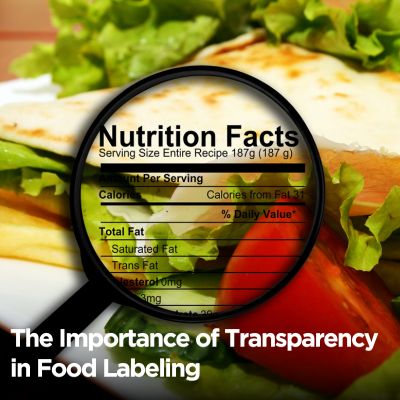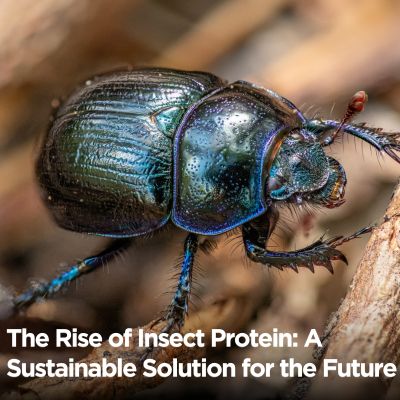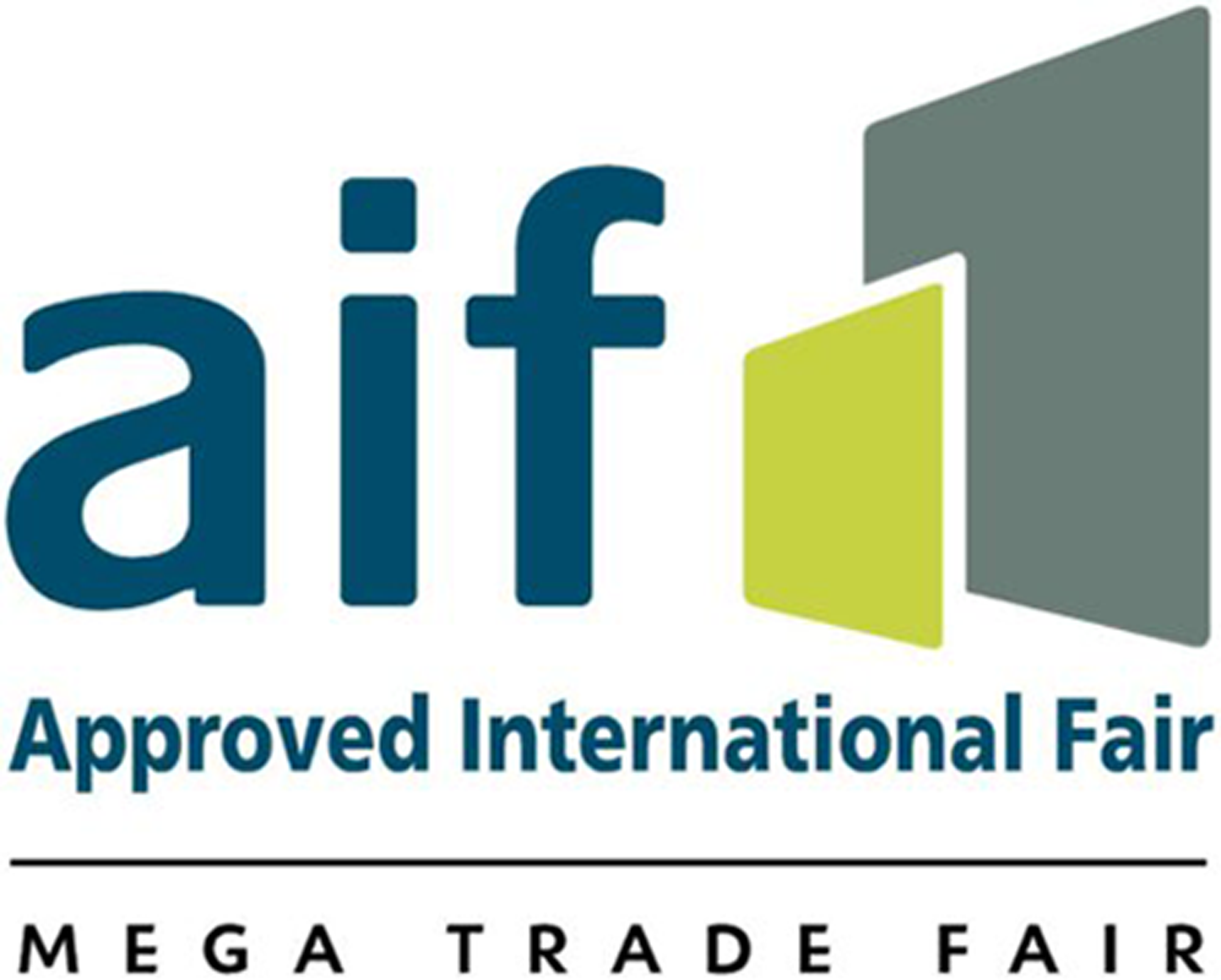For as long as we can look back in history, we’ve known that meat comes from animals.
This dietary preference for consuming meat has led to the extensive farming of various animals, as it provides proteins and fats for energy.
But now, growing meat in a lab, entirely outside an animal’s body, is possible.
While the industry is relatively new and far from commercialization, companies want to validate and test whether lab-grown meat could be appropriate for billions of consumers seeking halal or kosher diets.
So, is lab-grown meat halal?
Let’s dive in.
Understanding Lab-Grown Meat
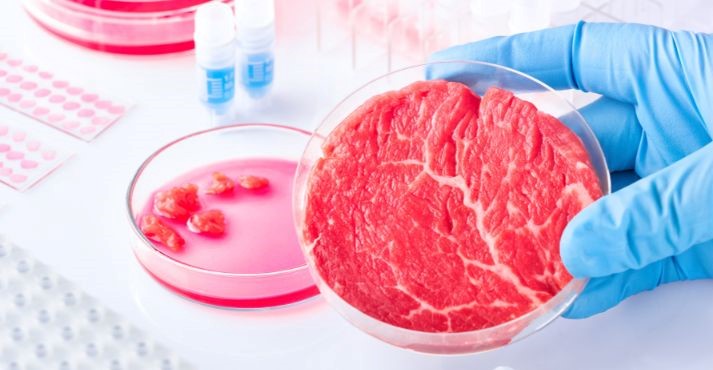
So, what is lab-grown meat, and why are so many people interested in it?
Lab-grown, cultured, cell-based meat, or cultivated meat, is produced by cultivating animal cells in a controlled environment, eliminating the need for traditional animal farming.
Scientists extract a small sample of muscle cells, which are then cultured and stimulated to replicate, forming edible tissue. This sustainable approach reduces environmental impact, mitigates ethical concerns associated with traditional meat production, and addresses global food security challenges.
Lab-grown meat has yet to reach the commercial production scale. Still, it has a promising solution to meet the growing demand for protein while minimizing the ecological footprint and ethical implications associated with conventional livestock farming.
Lab-Grown Meat Production Process
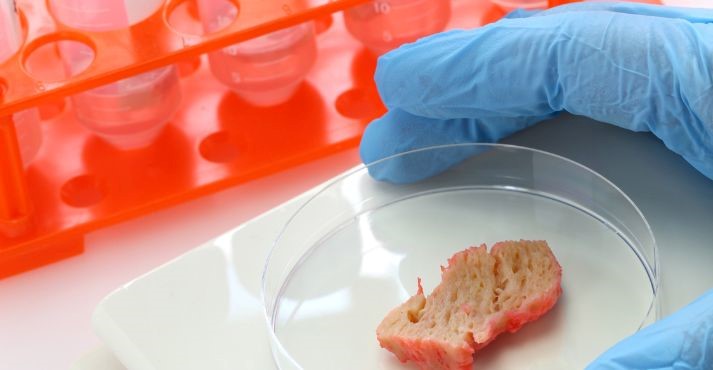
The process of cultivating meat from animal cells in a laboratory setting involves the following steps:
1. Cell Harvesting
Obtain a sample of stem cells from a living animal, where stem cells have the potential to develop into various specialized cell types such as muscle, fat, or connective tissue.
2. Bioreactor Cultivation
The harvested stem cells are introduced into large bioreactors filled with culture media, simulating an environment similar to the animal’s body. The culture media provides essential nutrients for the cells to expand and grow.
3. Cell Differentiation
Change the culture media to encourage stem cells to differentiate into the primary components of meat—muscle, fat, and connective tissue.
4. Scaffolding and Tissue Formation
Employ a scaffold, an edible material, to organize and “construct” the desired meat type, such as steak or mincemeat. The scaffold holds cells together and facilitates nutrient transport and further cell differentiation.
But the question remains: is lab-grown meat considered a halal food? The lab-grown meat production involves stem cells from live animals, which may raise concerns regarding halal requirements.
However, the process typically avoids non-Halal elements, as it primarily revolves around cellular cultivation and differentiation in controlled environments without traditional slaughter methods.
So, it remains a crucial concern for halal food market consumers worldwide. Still, individual interpretations of Halal guidelines may vary, prompting the need for careful consideration and validation within the Islamic dietary context.
Religious Perspectives on Lab-Grown Meat
Can Muslims eat lab meat? It is essential to understand how they might relate to cellular agriculture, a.k .a. cultivated meat, as a significant source of meat.
Religious perspectives have become imperative for the cultivated meat industry.
The concept of nutrition in Islam is based on the guidance of Shariah Law, which is sourced from the Qur’an, sunnah, the consensus of Islamic jurists (ijma’) and analogy (qiyas), and the method of legal consideration (ijtihad).
Scholars’ Opinions
So, is lab meat halal in Islam? And what are the Islamic scholars’ viewpoints regarding the permissibility of lab-grown meat?
According to Islamic scholars’ guidance, for meat to be considered halal, its cell line must originate from an animal permissible for Muslims to consume, it must have been slaughtered by Islamic law, and it must have been fed permissible nutrients.
According to a research study, Cultured Meat in Islamic Perspective, the halal status of cultured meat can be resolved by identifying the source cell and culture medium used in culturing the meat.
The halal cultured meat can be obtained if the stem cell is extracted from a (Halal) slaughtered animal, and no blood or serum is used.
Fatwa Considerations
According to Singapore’s halal food sector, the Majlis Ugama Islam Singapura, the only entity with the right to issue halal certification in the city-state, is working with Singaporean cultivated meat maker Esco Aster to establish a regulatory framework.
A research study, Scientific and Islamic perspectives about the Halal status of cultured meat, stated that the stem cells of cultured meat must come from halal animals, and animals should be slaughtered according to the Shariah law and fatwa.
Comparison of Lab Meat and Traditional Halal Meat
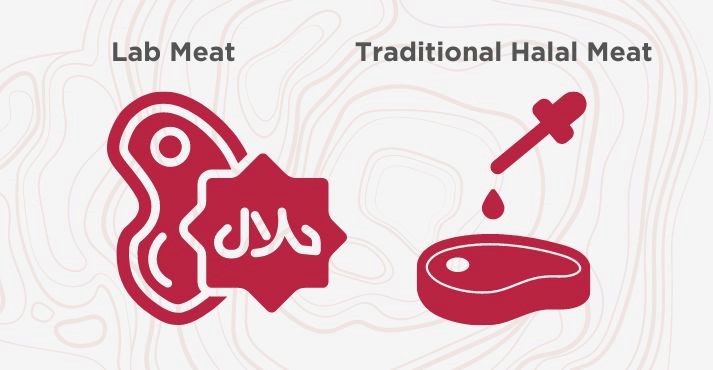
Cultured meat is one of the most promising ideas in foodtech, and it is expected to be in the market in the following years.
Let’s compare lab and traditional halal meat based on the slaughtering criteria and ethical considerations.
Slaughtering Criteria
The slaughtering criteria are crucial in determining adherence to Islamic dietary laws when comparing traditional halal meat production with lab-grown meat.
Islam has set certain conditions in the slaughtering process, which cover the conditions of the animal, the slaughterer, and the tool used for slaughter.
Traditional halal meat follows a meticulous process involving a skilled individual (known as a “Zabiha”) who performs a ritualistic slaughter, ensuring the animal is slaughtered with a swift, humane cut to the throat while invoking the name of Allah.
This process aims to minimize the animal’s pain and stress.
The lab-grown meat production does not involve conventional slaughter. Instead, it relies on cellular agriculture, where animal cells are cultivated in a controlled environment.
The absence of conventional slaughter methods in lab-grown meat production raises questions about compliance with traditional halal slaughtering criteria, as the procedure differs significantly from the established rituals of traditional halal meat production.
Ethical Considerations
Lab-grown meat presents ethical considerations compared to traditional methods, particularly concerning environmental impact and animal welfare.
From an environmental view, traditional meat production contributes significantly to deforestation, greenhouse gas emissions, and water pollution.
Meanwhile, lab-grown meat has the potential to reduce these environmental impacts, as it requires fewer natural resources and produces lower greenhouse gas emissions.
Traditional meat production often involves factory farming practices that can be associated with overcrowding, unsanitary conditions, and inhumane treatment in terms of animal welfare.
Lab-grown meat produced through cellular agriculture eliminates the need for raising and slaughtering entire animals, potentially reducing animal suffering.
However, concerns remain about the welfare of the cells used in lab-grown meat and the long-term effects of the cell culture process.
While lab-grown meat offers promising ethical advantages, ongoing research and advancements are essential to address these concerns and ensure a more sustainable and humane future for meat production.
Synthetic Meat Consumer Awareness

Lab-grown meat is an alternative protein that offers health and environmental advantages over traditional meat, yet many consumers are resistant to consume.
Raising awareness among Halal consumers about lab-grown meat is essential to ensure informed choices aligned with religious beliefs.
As this innovative technology gains traction, informing consumers about the production process, ethical considerations, and adherence to Halal standards is essential.
Moreover, product and menu labeling is essential in the lab-grown meat industry, ensuring consumers are informed about the origin and production methods.
Precise and accurate labeling helps Halal consumers make informed choices aligned with their dietary and ethical preferences.
Establishing industry standards for labeling enhances transparency, contributing to consumer confidence and the responsible development of lab-grown meat within the Halal market.
Lab Meat Challenges and Opportunities
Lab-Grown Meat Challenges
Here are some of the most common challenges associated with lab-grown meat acceptance within Halal communities:
1. Religious Acceptance
Lab-grown meat faces skepticism within Halal communities due to concerns about religious permissibility. Overcoming doubts regarding the compatibility of the cellular agriculture process with Halal principles is essential for broader acceptance.
2. Lack of Familiarity
Limited awareness and understanding of lab-grown meat among Halal consumers pose a challenge. Familiarizing individuals with the technology, its benefits, and adherence to Halal standards is essential for acceptance within these communities.
3. Cultural Attachments
Traditional meat holds cultural significance, making it challenging for lab-grown alternatives to replace ingrained practices. Addressing cultural attachments and emphasizing the ethical and environmental benefits of lab-grown meat is essential for acceptance within Halal communities.
Lab-Grown Meat Opportunities
Here are some opportunities associated with lab-grown meat acceptance within Halal communities:
1. Ethical Consumption
Lab-grown meat aligns with ethical considerations by potentially reducing animal suffering and promoting humane practices. This resonates with Halal consumers who prioritize ethical consumption by their religious values.
2. Environmental Sustainability
Lab-grown meat offers a more sustainable alternative, addressing concerns about environmental impact within Halal communities. Positioning it as an eco-friendly option may appeal to those who value environmental sustainability.
3. Changing Dietary Preferences
As dietary preferences evolve, particularly with younger generations, lab-grown meat presents an opportunity to cater to shifting tastes. Highlighting its alignment with modern dietary choices can enhance acceptance within Halal communities, embracing new culinary trends.
4. Health Considerations
Lab-grown meat has the potential to offer healthier alternatives, free from specific health concerns associated with traditional meat consumption. Emphasizing the health benefits, such as reduced antibiotics and potential customizations, can attract Halal consumers seeking healthier dietary options.
Conclusion
Whether lab-grown meat is Halal revolves around its production process and adherence to Islamic dietary laws.
While traditional Halal meat is subject to specific slaughter criteria, lab-grown meat is cultivated without conventional slaughtering methods. The acceptance within Halal communities depends on transparent labeling, religious endorsements, and addressing concerns about the technology.
Key steps include achieving Halal certification, ensuring ethical and humane practices, and highlighting environmental sustainability.
As the industry evolves, continuous engagement, education, and collaboration between stakeholders are essential to gain acceptance for lab-grown meat within Halal dietary practices while respecting the principles of Islamic ethics.
So, the question: Is lab-grown meat halal? Remains under consideration by different Islamic scholars worldwide.

